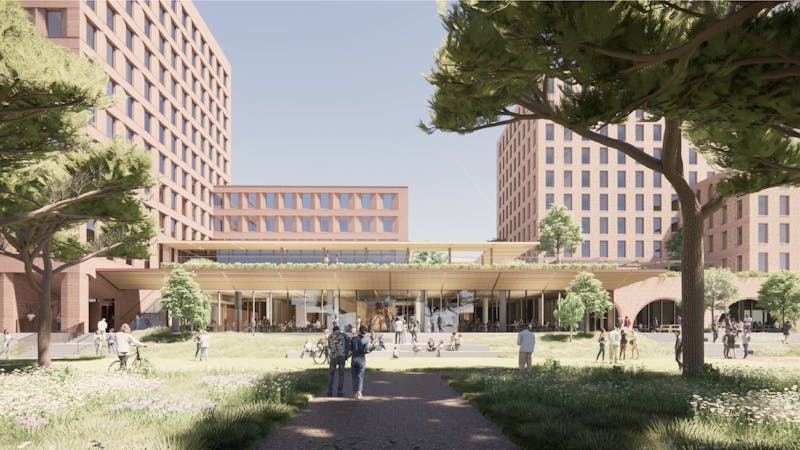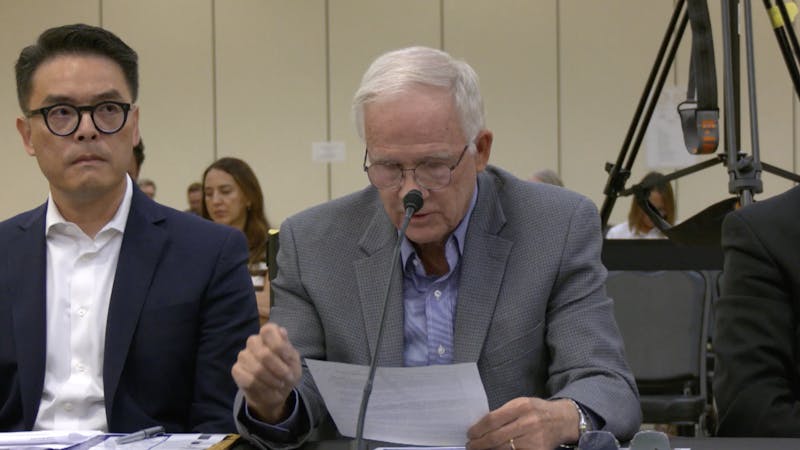RESET to promote green initiatives
A few years ago, a group of fellow students and I learned about an exciting new initiative occurring on college campuses across the country. In an effort to combat rising energy costs and contribute to the fight against climate change, students at schools such as the University of North Carolina and the University of Illinois voted to establish sustainable energy funds to implement energy conservation and renewable energy projects on their campuses. The idea has since taken off, with more than 30 schools nationwide establishing similar programs amid high levels of student support.We were curious about this idea and set about conducting research to see if we could institute a similar program here at Rice. We discovered that over the last eight years, energy costs for Rice have quadrupled. Furthermore, over the last three years, on-campus housing fees have risen 20 percent, with a portion of these fees being those same energy costs passed on to students. We also learned about the efforts the university is taking to defray energy costs, such as Leadership in Energy and Environmental Design accreditation for new buildings, construction of the South power plant and installation of a new central energy dashboard system that monitors energy usage across campus.
Three years later, our work has culminated in the proposal to establish the Rice Endowment for Sustainable Energy Technology. RESET would work as follows: Students would pay a $9 blanket tax each year, which would establish the base fund for projects such as installation of wind turbines or solar thermal water heating systems. The fund would be overseen by a committee consisting of students, as well as faculty and staff with expertise in the energy field.
Members of the Rice community could then work together to propose ideas to the committee for campus energy conservation projects or renewable energy projects. The committee would evaluate the proposals and select the best ideas based on a detailed set of criteria, including clear economic payback for students and the ability to procure matching funds. The result of RESET projects would be to reduce our energy consumption and raise the campus energy supply, thus saving us money while reducing our environmental impact.
RESET will offer economic, environmental and educational benefits to the student body. Economically, lower utility bills at the residential colleges will result directly in decreases in housing fees. Furthermore, by saving money on energy costs during a period of severe budget cutbacks, the university will be able to preserve funding for programs and services that directly benefit students.
Environmentally, we will be reducing our reliance on oil, gas and coal and promoting technologies that will eventually steer us toward a clean-energy future where we are free to consume electricity without worrying about damage to our planet.
And educationally, we will be promoting student innovation by providing those interested in engineering or energy economics with a unique opportunity to collaborate with their professors and peers to design and implement large-scale energy projects with a tangible impact in their community.
Despite the benefits the program could potentially provide, I have heard several criticisms of the proposal. First, some have asked why this fund needs to be a mandatory, rather than a voluntary, fee. The answer is that because energy is a public good that we all utilize, we need to buy in equally. If everyone could reap the benefits without paying the cost, there would be a strong incentive to free-ride, which results in programs being underfunded.
Second, some students have wondered why we are requesting $9. We selected $9 based off research we compiled from other schools. We looked at the projects most other schools implemented and found that $15,000 was the rough threshold for large-scale projects that could make a measurable impact on energy consumption. The proposed $9 would provide the funding for roughly two such projects each year.
Finally, we have been asked why the university is not simply addressing this issue on its own. Rice has made impressive strides in its energy policy during the last few years and administrators from Facilities, Engineering and Planning, as well as from H&D, have demonstrated strong interest in providing matching funds on a project-by-project basis. It has been clear to us in our discussions that if RESET is established, we will be able to get the administration to sign on as a partner. When we mentioned a sustainable energy fund to various faculty, staff and administrators, they were all enthusiastic about the idea. The real question is, "As students, do we want to lead, or simply to follow?"
The Student Association General Election starts today, and we students now face a choice. We can choose to continue down the dangerous path of business as usual, or we can choose to be proactive and establish a program that will save us money, save our planet and equip us with the tools to be future leaders in the new energy economy.
I've learned a lot about Rice students during my time here, and I know we are innovative and daring enough to make this program work. Together, let's vote for RESET, and invest in our future.
Patrick McAnaney is a Brown College senior and Student Association president. Carl Nelson, a Brown College junior and SA Environmental Committee Chair; and Josh Rutenberg, a Lovett College sophomore and Thresher news editor, contributed to this column.
More from The Rice Thresher

Rice announces Chao College as 12th residential college
Rice announced that the 12th residential college will be named Ting Tsung and Wei Fong Chao College Aug. 19. The college, set to open in fall 2026, will contain nearly 300 on-campus beds.
Dining access fund announced following on-campus unlimited meal swipes
Rice announced new food assistance programs on Tuesday to account for the controversial change in the on-campus meal swipe plan.

Rice disaster prediction model discussed at hearing on deadly Central Texas floods
The House and Senate Select Committees on Disaster Preparedness and Flooding held a hearing on July 31 in Kerrville to address the deadly July 4 flooding in Central Texas. The flooding along the banks of the Guadalupe River killed 108 people, including 37 children. In the charged hearing, Texas lawmakers and flood survivors criticized the local response to the disaster.


Please note All comments are eligible for publication by The Rice Thresher.